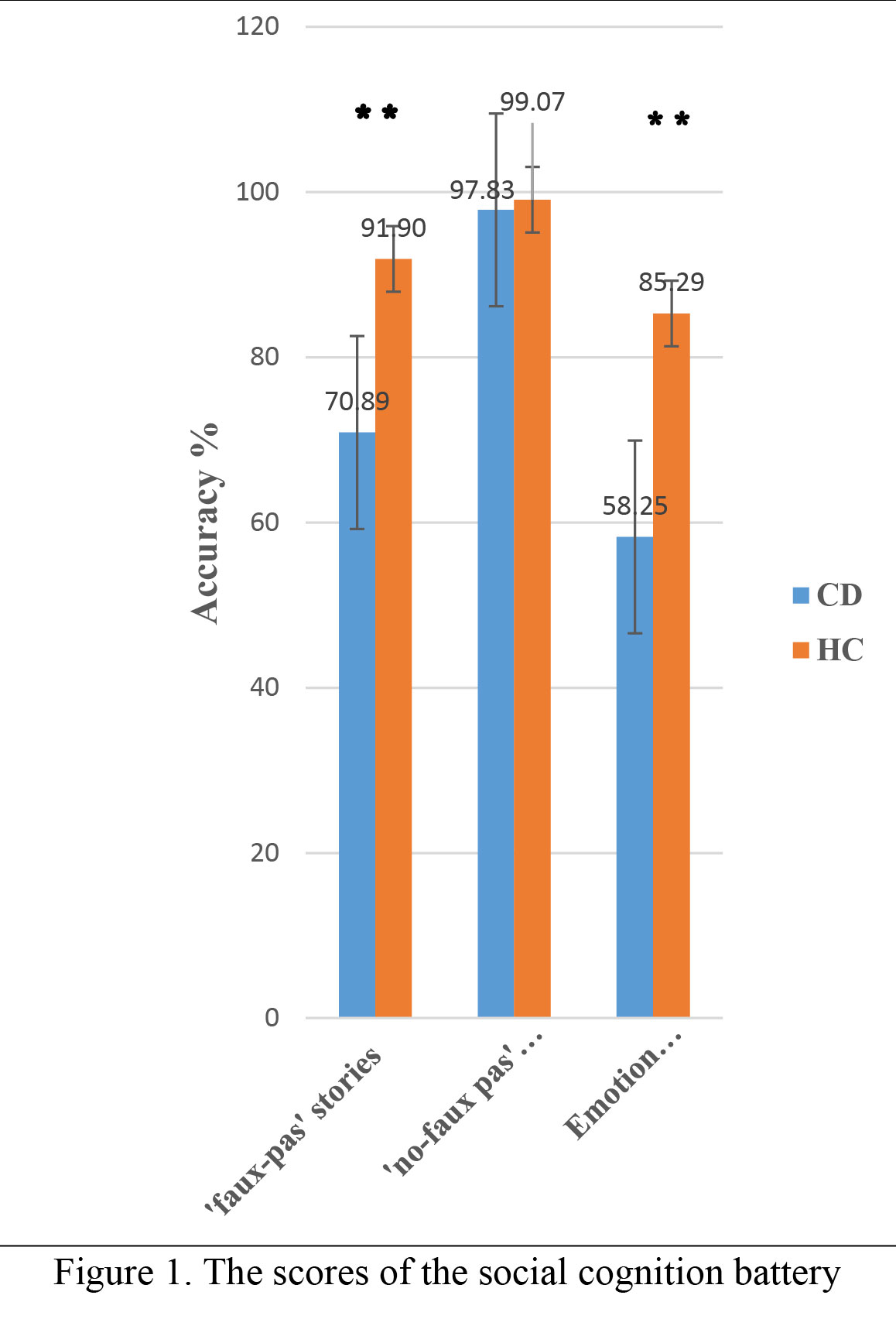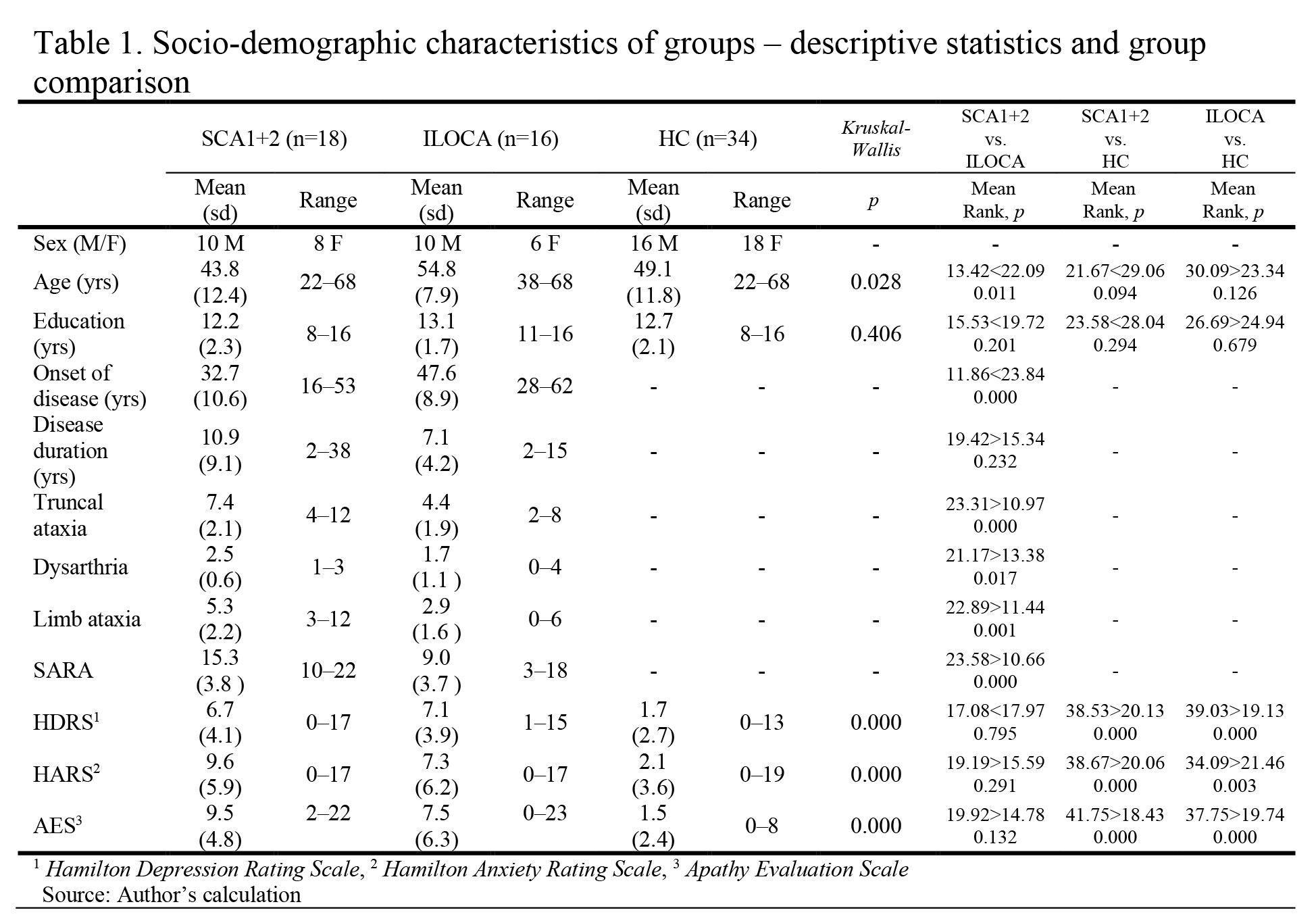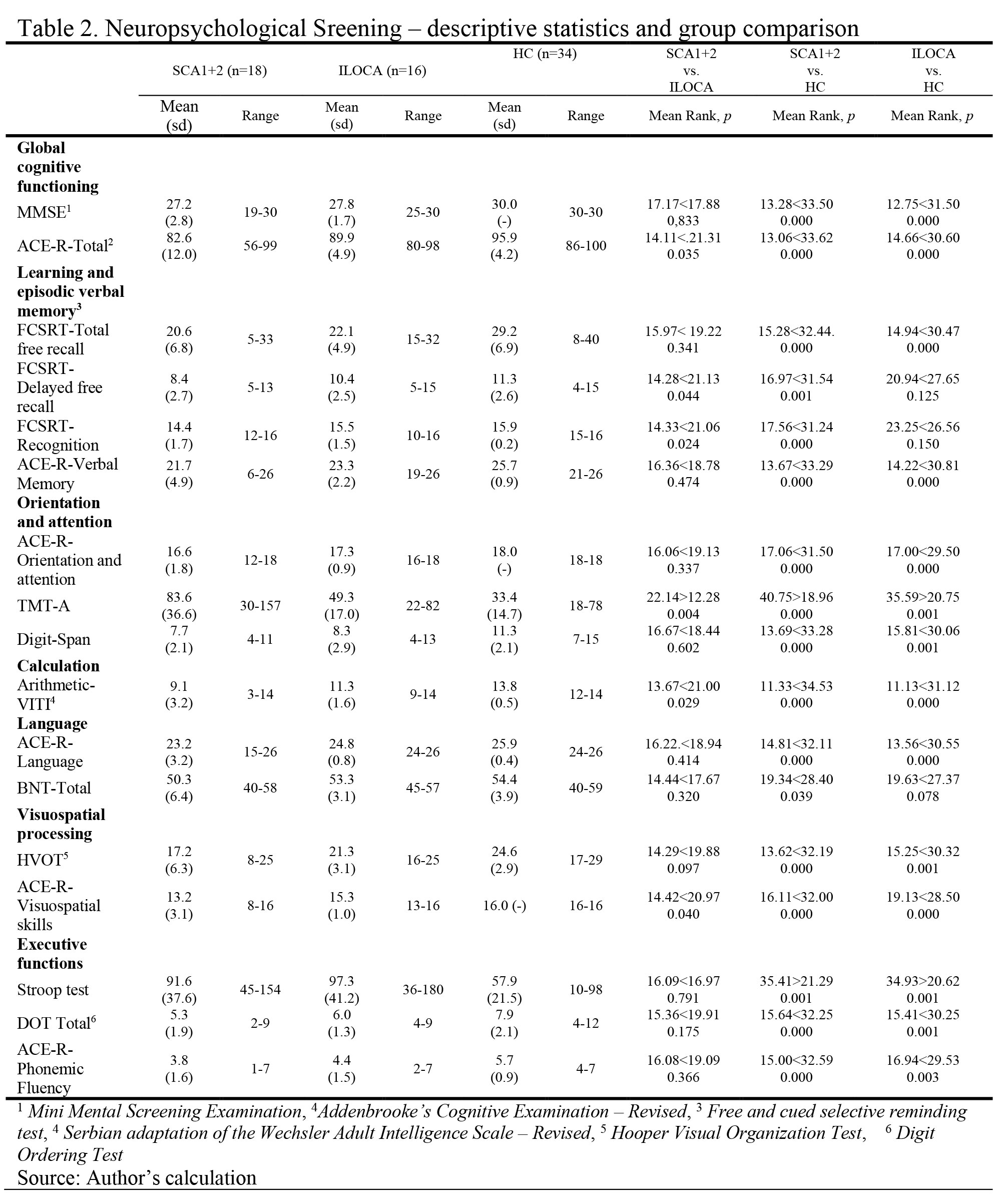Category: Ataxia
Objective: The aim of this study was to investigate theory of mind (ToM) in patients with different cerebellar neurodegenerative disorders (CD).
Background: CD are a heterogeneous group of disorders. It has been recognized that cerebellum has role not only in motor but also in cognitive and social cognitive functions.
Method: ToM was examined in total of 34 patients, 12 with spinocerebellar ataxia type 1 (SCA1), 6 patients with spinocerebellar ataxia type 2 (SCA2) and 16 patients with idiopathic late onset cerebellar ataxia (ILOCA). All patients were evaluated clinically using the Scale for the Rating and Assessment of Ataxia (SARA). In addition to the previously described body of patients with ataxias, 34 age-, sex-, and education-matched healthy control (HC) subjects took part in the study. An appropriate battery of tests was used to assess global cognitive status as well as frontal neuropsychological functions and mood. ToM was studied using two tests (Faux Pas Recognition Test and Reading the Mind in the Eyes Test – RMET).
Results: We have determined significant differences in the performance on ToM tests between the CD patients and HC p=0.000 <0.01, and a significant difference on the Faux Pas Recognition Test p=0.002 <0.05 and RMET p=0.015 <0.05 between the SCA1+2 and ILOCA groups. The Stroop Test has a significant impact on the achievement in RMET in patients of the SCA1+2 group (p<0.05). We determined that FCSRT-Delayed free recall (p=0.005<0.05), Trail Making Test Part A – TMT-A (p=0.002<0.05) and Boston Naming Test – BNT-Total (p=0.031<0.05) represent significant predictors of achievement on the Faux Pas Recognition Test, and BNT-Total (p=0.000<0.05), Hooper Visual Organization Test (HVOT) (p=0.047<0.05) and FCSRT-Total free recall (p=0.025<0.05) represent significant predictors of achievement on the RMET in the whole group of CD patients.
Conclusion: Our preliminary results show that social cognitive impairment in CD is associated with ToM dysfunction and that impairment is present in different degenerative disorders of the cerebellum. Patients with SCA1 and SCA2 exhibit a more pronounced impairment on ToM tests compared with ILOCA patients and these two groups exhibit different neuropsychological profiles. The independent predictor of ToM impairment of CD were language, visuospatial functions, and executive function.
To cite this abstract in AMA style:
O. Tamas, A. Kacar, E. Stefanova, B. Salak Djokic, A. Milovanovic, D. Stanisavljevic, M. Kostic, N. Dragasevic Miskovic. Theory of mind in patients with cerebellar neurodegenerative disorders [abstract]. Mov Disord. 2021; 36 (suppl 1). https://www.mdsabstracts.org/abstract/theory-of-mind-in-patients-with-cerebellar-neurodegenerative-disorders/. Accessed July 12, 2025.« Back to MDS Virtual Congress 2021
MDS Abstracts - https://www.mdsabstracts.org/abstract/theory-of-mind-in-patients-with-cerebellar-neurodegenerative-disorders/



